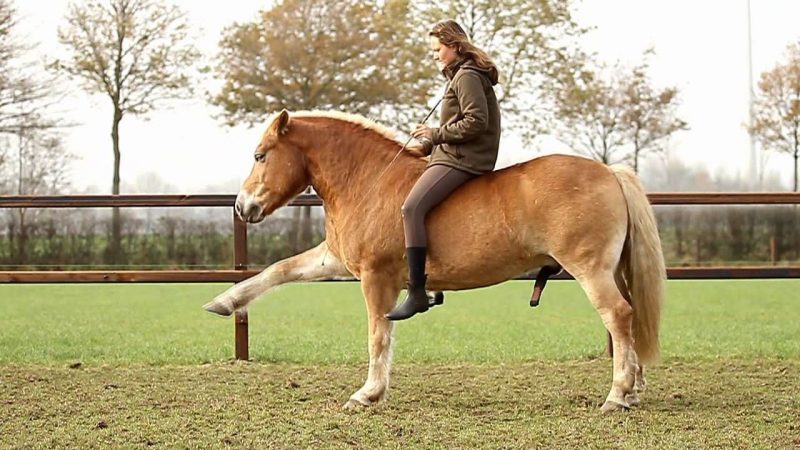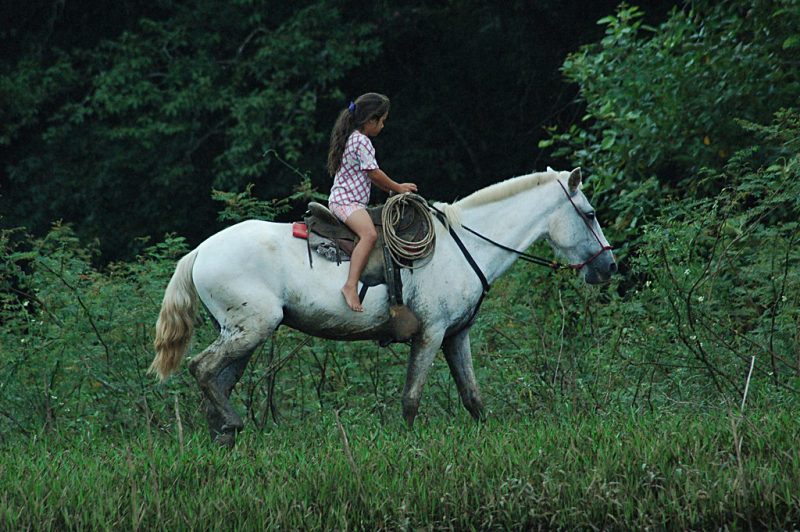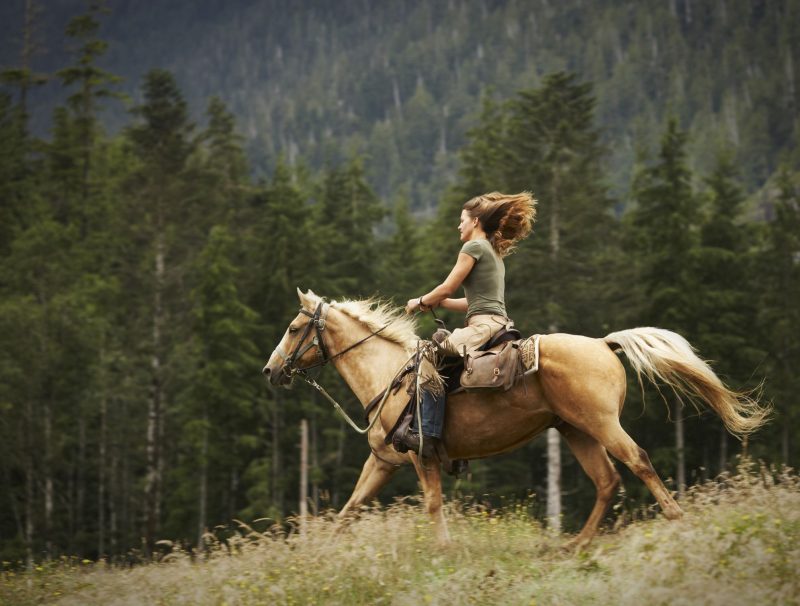Contents
Horse riding is not just a hobby or a sport – it’s a journey into self-discovery. Through the guidance of these majestic creatures, we are given the opportunity to delve into our physical and emotional strengths, to look beyond ourselves and develop empathy towards another being. Whether you’re taking your first steps in the stirrups or have been a rider all your life, there are 10 important life lessons that horses can teach us:
1. Responsibility: When you become a rider, you assume an additional sense of responsibility. Horses are sensitive beings that rely on us to care for them properly. From feeding and grooming to training and providing medical attention, it’s important to develop a plan and stick to it.
2. Patience: Horses have their own tempo and rhythm, and they often work at a different pace than we do. In order to progress in your riding, you must learn to be patient and understand that sometimes things take time and repetition.
3. Confidence: Being a great rider requires confidence – confidence in yourself and in your horse. Horses have a special ability to sense their rider’s mood and energy. Therefore, it’s important to develop self-control and remain calm and confident even in challenging situations.
4. Perseverance: Horses teach us the value of perseverance. They provide us with the opportunity to work hard and never give up. Whether it’s mastering a new skill or overcoming a fear, horses inspire us to keep going.
5. Connection: Horses have an incredible ability to connect with humans on a deep and emotional level. Through their presence and gentle nature, they allow us to feel understood and loved. Riding horses can be a great mood booster and an additional source of emotional support.
6. Strength and Fitness: Horse riding is not just sitting in the saddle – it’s a physical workout. Riding requires balance, coordination, and core strength. It also provides an excellent cardiovascular exercise. So, if you’re looking for an extra fitness boost, horse riding is a great option!
7. Focus and Concentration: When you’re on a horse, you need to be present in the moment. Riding requires focus and concentration. This equine activity helps you develop your ability to stay focused and concentrate on the task at hand.
8. Empathy: Horses are incredibly sensitive creatures, and by working with them, we can develop a deeper sense of empathy. We learn to understand and respond to their needs, which in turn helps us become more empathetic towards other human beings.
9. Teamwork: Horse riding is not a solo sport. It requires teamwork and collaboration between the rider and the horse. In order to achieve your goals, you need to work together and establish a mutual understanding.
10. Enjoyment of Nature: Horses have a profound connection to nature, and through riding, we can share in that connection. Horseback riding takes us outdoors, where we can embrace the beauty of nature and enjoy the freedom it brings.
In conclusion, horse riding is not just about the physical act of riding a horse – it’s a transformative experience that allows us to learn and grow both as individuals and as members of society. So, whether you’re a seasoned equestrian or have never been on a horse before, I suggest taking the reins and embarking on this journey of self-discovery. You never know, you might just find that being a rider is something you’ve always been meant to do.
Discovering Strength
Horse riding is not just an activity; it’s an experience that teaches us about strength. When you spend time in the saddle, you learn to develop physical and mental skills that suggest strength is not just about power, but also about self-control and communication.
In the countryside, horse riding offers a gritty and fulfilling workout. As you learn to ride, you’ll start in a controlled environment like a riding school or stable. Your teacher or a professional equestrian will guide you on how to get on a horse, hold the reins, and place your feet in the stirrups. It’s essential to develop a strong relationship with your horse through clear communications.
Once you’re comfortable, you can progress to more challenging exercises, like jumping over obstacles. Jumping requires a combination of strength, timing, and communication. You need to be keenly aware of your horse’s movements and adjust accordingly. It’s absolutely important to exercise caution as jumping can be dangerous if not done right.
As you advance your riding skills, you’ll also learn about the importance of self-control. Horses are sensitive creatures that can easily pick up on your emotions. If you’re feeling anxious or tense while riding, your horse will sense it. Therefore, it’s crucial to master self-control and maintain a calm and confident demeanor.
| Strengths in Horse Riding |
|---|
| Riding offers a fulfilling workout for both physical and mental fitness |
| Developing a strong relationship with your horse through clear communication |
| Mastering self-control and maintaining a calm and confident demeanor |
| Learning to jump over obstacles with precision and caution |
| Understanding the sensitivity of horses and how it affects their behavior |
Horse riding is also about companionship and the bond between horse and rider. Horses can become your best companions, and as you spend time with them, you’ll develop a deep understanding of their behavior and needs. This companionship can be very enriching and fulfilling.
While horse riding may seem like an individual sport, it also teaches the importance of teamwork and communication. Whether you’re riding with others in a lesson or participating in a horse show, proper communication with other riders is crucial for the safety and success of everyone involved.
How Horse Riding Builds Strength
Riding a horse requires strength in various forms. As a rider, you need physical strength to stay balanced and control the horse’s movements. Your legs and core muscles play a significant role in maintaining stability and posture while riding. Properly positioning your hips and engaging your core muscles can help give you a solid foundation and a strong seat in the saddle.
In addition to physical strength, horse riding also builds mental strength. Learning to adapt to new situations, overcoming challenges, and staying focused during the ride all require mental fortitude. Horses can be unpredictable, and being able to remain calm and confident in these situations is crucial.
Furthermore, horse riding fosters emotional strength. The bond between a rider and a horse goes beyond mere physicality. It requires trust, patience, and understanding. The ability to empathize with your horse and read their cues is essential in developing a strong emotional connection.
Overall, horse riding is a challenging but rewarding activity that helps you discover and cultivate your strength – physical, mental, and emotional. It teaches valuable life lessons that can be applied to various aspects of life and enhances personal growth.
Cultivating Patience

Patience is a virtue that can be difficult to master, but horse riding provides the perfect environment for learning this important life skill. When interacting with a horse, patience is essential in building trust and connection. Horses are highly sensitive beings, and it takes time and patience to establish a safe and secure relationship with them.
One cannot simply jump into riding a horse without proper preparation and resources. Just like any sport, horse riding requires learning about the equipment, the horse’s needs, and the fundamentals of riding. It is important to be intentional and mindful during the learning process, taking the time to understand the horse’s language and needs.
Children especially benefit from horse riding as it helps them develop patience and self-control at a young age. Riding a horse teaches them to listen to their own body, as well as the needs of the animal they are riding. Moreover, it instills a sense of responsibility towards caring for the horse’s well-being.
As one progresses in horse riding, they start to find a balance within themselves, physically and mentally. The learning journey involves small victories, like mastering the trotting or controlling the horse’s movements with the reins. These achievements boost confidence and create a sense of fulfillment.
Being involved in horse riding also fosters teamwork and connection with others. In riding schools and stables, riders learn to communicate with their instructors and fellow riders, creating a supportive and collaborative environment. The bond formed with a horse is also based on trust and teamwork, as both rider and horse work together to achieve their goals.
In summary, cultivating patience while horse riding is an exercise in self-discovery. It is about finding balance within oneself, learning to be intentional and mindful, and building a strong connection with an animal. It is an experience that not only benefits physical health but also nurtures important life skills and boosts confidence. So, what’s not to love about horse riding?
| 1. | A way of becoming |
| 2. | A supportive environment |
| 3. | Learning the fundamentals |
| 4. | Developing self-control |
| 5. | Fostering teamwork |
Building Connection

Horse riding is not just a physical activity; it is a sport that helps in the development of a wide range of skills. One of the most important lessons it teaches is how to build a connection with these magnificent beings. Horses are sensitive creatures that respond to the emotions and cues of humans. By learning to communicate effectively with a horse, riders not only develop a deep bond with their four-legged companions but also gain a better understanding of themselves.
Building a connection with a horse involves much more than just knowing how to ride. It requires patience, perseverance, and a willingness to listen and learn from the horse. Riders must learn to take responsibility for the needs of the horse and show respect for its well-being. By doing so, they can create a safe and fulfilling environment for both themselves and their equine partners.
When it comes to building connection, confidence and self-control play a crucial role. Horses are sensitive to a rider’s emotions and can pick up on any fear or uncertainty. Therefore, riders must learn to think and act confidently, even in difficult situations. By successfully mastering each new challenge, riders not only develop a sense of accomplishment but also build a strong bond with their horse.
Effective Communication

Communication is key when it comes to building connection with a horse. Riders must learn to use their body language, voice commands, and reins effectively to convey their intentions to the horse. Through clear and consistent cues, riders can create a language that the horse understands. This allows for a deeper level of trust and understanding between rider and horse.
Responsibility for the horse’s well-being is not only shown through effective communication but also through meeting the horse’s physical and emotional needs. This includes providing proper care, such as feeding and grooming, as well as monitoring the horse’s health and overall well-being. By taking responsibility for the horse’s needs, riders show their dedication and commitment to their equine companion.
Therapeutic Benefits
Building a connection with a horse can have therapeutic benefits for individuals of all ages, including children. Horse riding has been shown to improve confidence, self-esteem, and overall well-being. The physical activity involved in riding helps develop strength, balance, and coordination. The bond formed with the horse provides companionship and a sense of purpose.
Visiting the stables and interacting with horses also offers a unique opportunity for individuals to step outside of their comfort zones and try new things. Horse riding can challenge individuals to overcome their fears, take risks, and push their limits. By doing so, riders develop a greater understanding of themselves and their capabilities.
| What’s more… | What’s more… |
|---|---|
| Riding horses can create a sense of calmness and peace. | Horse riding is an effective way to develop physical strength and fitness. |
| The feedback received from a horse is immediate and honest. | Horse riding teaches riders the importance of perseverance and never giving up. |
| It is a sport that combines discipline and creativity. | Horse riding allows individuals to connect with nature and appreciate the outdoors. |
In conclusion, horse riding is not just about getting on a horse and going for a ride. It is a journey of self-discovery, building a connection with a magnificent animal, and developing a range of skills that can be applied in various aspects of life. The therapeutic benefits, confidence, and self-awareness gained through horse riding are absolutely invaluable.
Fostering Teamwork
Teamwork begins with communication. Horses are sensitive animals, and they respond best to clear and consistent communication. Riders must learn to give feedback to their horses and pick up on the horse’s cues. It’s a two-way street, and both the rider and the horse need to understand each other.
Teamwork on horseback involves working together to achieve a goal. Whether it’s jumping over fences, trotting in sync, or participating in a trail ride, riders and horses must plan and execute their actions appropriately. This requires trust and respect between the rider and the horse.
But it’s not just about the relationship between the rider and the horse. Horse riding is often done in a social setting, such as riding in a group or visiting a riding academy. In these situations, riders must also learn to work together with other riders to ensure everyone’s safety and enjoyment. It’s about being aware of others, communicating effectively, and picking up on the needs and interests of others.
Teamwork in horse riding can also extend beyond the riding itself. Taking care of a horse involves various tasks, such as grooming, feeding, and reviewing equipment. Riders may need to assist each other in these activities, creating a sense of companionship and bond among the riders.
Overall, fostering teamwork in horse riding is crucial for a successful and fulfilling experience. It helps riders develop their communication skills, build trust and respect with their horses, and learn how to work effectively with others. So, if you’re interested in horse riding, be prepared to pick up not just the skills of riding itself, but also the nitty-gritty of teamwork.
Developing Communication
Communication is a fundamental aspect of horse riding and is essential for building a strong connection with the horse. Through effective communication, riders can give clear and precise commands to the horse, allowing them to work together as a team. Developing good communication skills as a rider might take time and practice, but the benefits are well worth the effort.
When it comes to communication, timing is key. Riders must learn to give their cues at the right moment to achieve the desired response from the horse. They must also learn to listen to the horse and understand its subtle signals in order to respond appropriately. By developing this understanding, riders can better meet the needs of the horse and create a harmonious partnership.
Another important aspect of communication is self-control. Riders must learn to control their own body and emotions in order to effectively communicate with the horse. This includes maintaining balance and posture, as well as staying calm and focused during the ride. By practicing self-control, riders can provide clear and consistent signals to the horse, improving the overall communication between them.
Communication is also a two-way street. Just as riders communicate with the horse, horses also communicate with riders. It’s important for riders to be receptive and responsive to the horse’s cues and feedback. By being attentive and sensitive to the horse’s needs, riders can better understand and meet their horse’s expectations.
Developing communication skills in horse riding not only enhances the rider’s ability to control and guide the horse, but it also deepens the bond and connection between them. It allows riders to truly feel and appreciate the horse’s movements and responses, making each ride a unique and fulfilling experience.
Q&A:
Can horse riding teach you important life lessons?
Yes, horse riding can teach you important life lessons such as strength, patience, and connection. It allows you to develop a strong connection with the horse while also teaching you the importance of being patient and persistent.
What are some of the life lessons one can learn from horse riding?
Some of the life lessons one can learn from horse riding are discovering strength, patience, and connection. It also helps in building confidence and self-control.
How does horse riding help in developing strength?
Horse riding helps in developing strength as it requires the rider to use various muscle groups to maintain balance and control the horse. The constant engagement of these muscles helps in building strength and endurance over time.
What role does patience play in horse riding?
Patience plays a vital role in horse riding as it takes time to build a strong bond and connection with the horse. It also requires patience to learn and master the different skills and techniques of riding.
